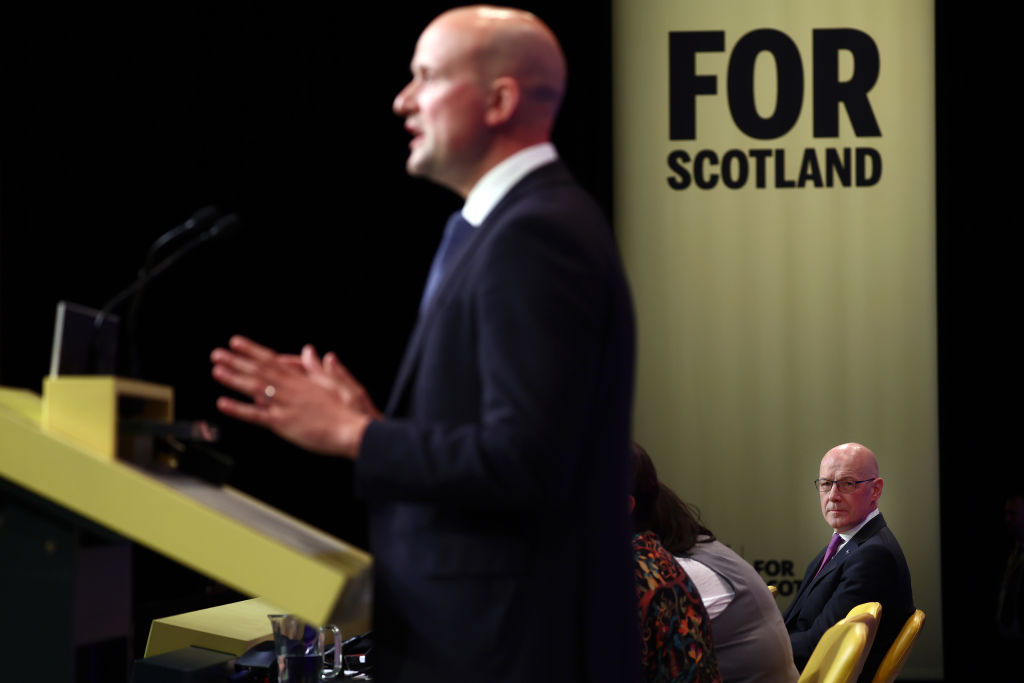There are 18 months until the 2026 Holyrood election and already talk is ramping up about who will stand. There are sure to be candidate vacancies – nobody seriously thinks that former first ministers who have had their day and fallen from favour are going to run again. Other MSPs may retire and there are sitting parliamentarians who could do with some healthy competition during the re-selection process. Fear of such competition no doubt underlies some of today’s expressions of antipathy towards SNP members of the Westminster parliament with Holyrood ambitions.
Anyone paying attention knows that the unprecedented rule change was specifically designed to stop me challenging Angus Robertson for the Edinburgh Central seat.
The SNP is now marginalised at the UK parliament by the loss of so many MPs at the general election – and by a huge government majority. It is therefore understandable that some of those who managed to hold onto their Westminster seats have set their sights on Holyrood. If the Scottish National party remains serious about its ultimate goal of independence, and continues to believe that the main action is at Holyrood, it is vital to get the best talent in place ahead of 2026. Stephen Flynn has been the first MP to declare, but I predict that he won’t be the last.
Having toppled Ian Blackford as Westminster leader against the wishes of Nicola Sturgeon, Stephen Flynn has proven himself to be a man of independent mind who can think for himself. We could certainly do with more of that in the SNP Holyrood group. However, whether he can stand for Holyrood without first resigning his Westminster seat and making all his staff redundant remains to be seen.
In 2021 the party’s national executive committee changed the party rules before the Holyrood election to stipulate that any sitting MP had to resign his or her seat before putting themselves forward for election to the Scottish parliament. There is a possible further impediment in that until recently there was a rule in the SNP that where a sitting MSP stood down there would be an all-women shortlist. This may limit the options of male MPs including Mr Flynn – who today declared his interest in the seat of Aberdeen South and North Kincardine.
Whether these rules will stay in place remains to be seen. Judging from comments from anonymous SNP insiders the party’s rulebook may be in something of a state of flux – and perhaps this is no bad thing. Anyone paying attention to what has been going on knows that the unprecedented rule against dual mandates introduced in 2021 was specifically designed to stop me challenging Angus Robertson for the Edinburgh Central seat. Further gerrymandering for the 2021 election involved positive discrimination in favour of those who self-identified as disabled – a rule put in place against legal advice – to engineer the toppling of Joan McAlpine, one of the party’s most able MSPs who had dared to challenge Nicola Sturgeon on the issue of self identification.
A politician with a dual mandate will have two lots of staff to help them do their job. This puts them in a powerful position – a fact probably not lost on Flynn.
These rules could do with being revisited. Moreover, the party might be well advised to avoid any unnecessary Westminster by-elections. However, if the SNP is committed to the process of internal reform, promised in the wake of Peter Murrell’s resignation as chief executive, then the party ought to have consistent rules rather than directives devised for reasons of political expediency that depend on which faction is currently in control.
It’s worth pointing out that the SNP has a history of major figures who have held dual mandates, including John Swinney and Alex Salmond. In terms of work ethic and effectiveness, SNP politicians could do a lot worse than take a leaf out of Alex Salmond’s book. Alex even donated his second salary to charity – which would also be a good precedent for those contemplating a dual mandate.
There is no reason why a parliamentarian who works hard in his or her constituency cannot hold down a job in both parliaments, particularly now that SNP votes cannot change anything at Westminster. Anyone with a dual mandate will have two lots of staff to help them do their job. This puts them in a powerful position – a fact probably not lost on Stephen Flynn.
Given recent council by-election results, multiple policy disasters, the likely fallout from Operation Branchform and the potential continuation of Alex Salmond’s action against the Scottish government for misfeasance in public office, the SNP could have a mountain to climb to hang onto power at the 2026 election. While Stephen Flynn’s latest move would put him in poll position for a leadership challenge, in the event that the SNP are consigned to opposition he and John Swinney could be two bald men fighting over a comb.






Comments